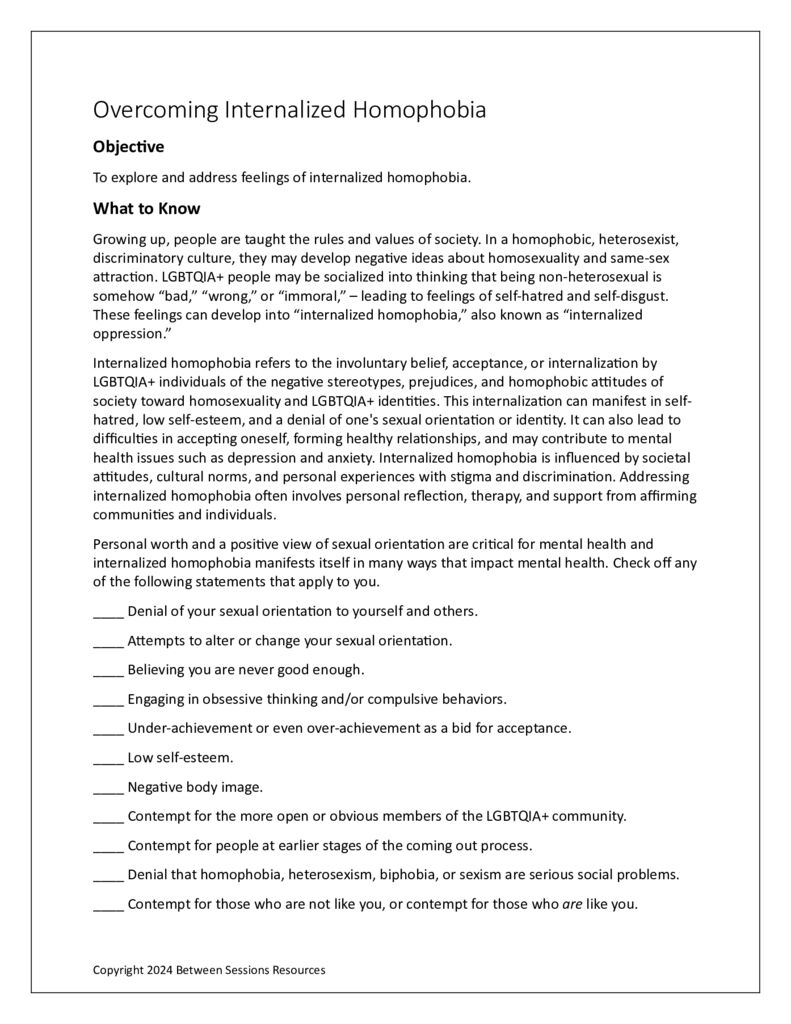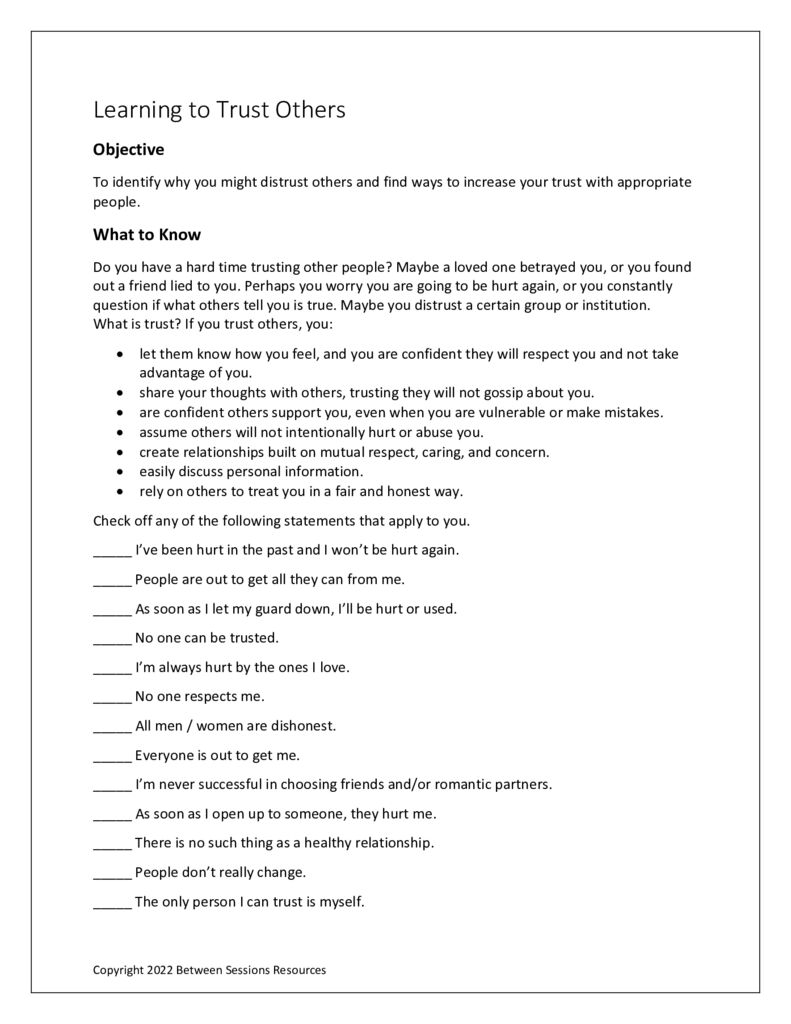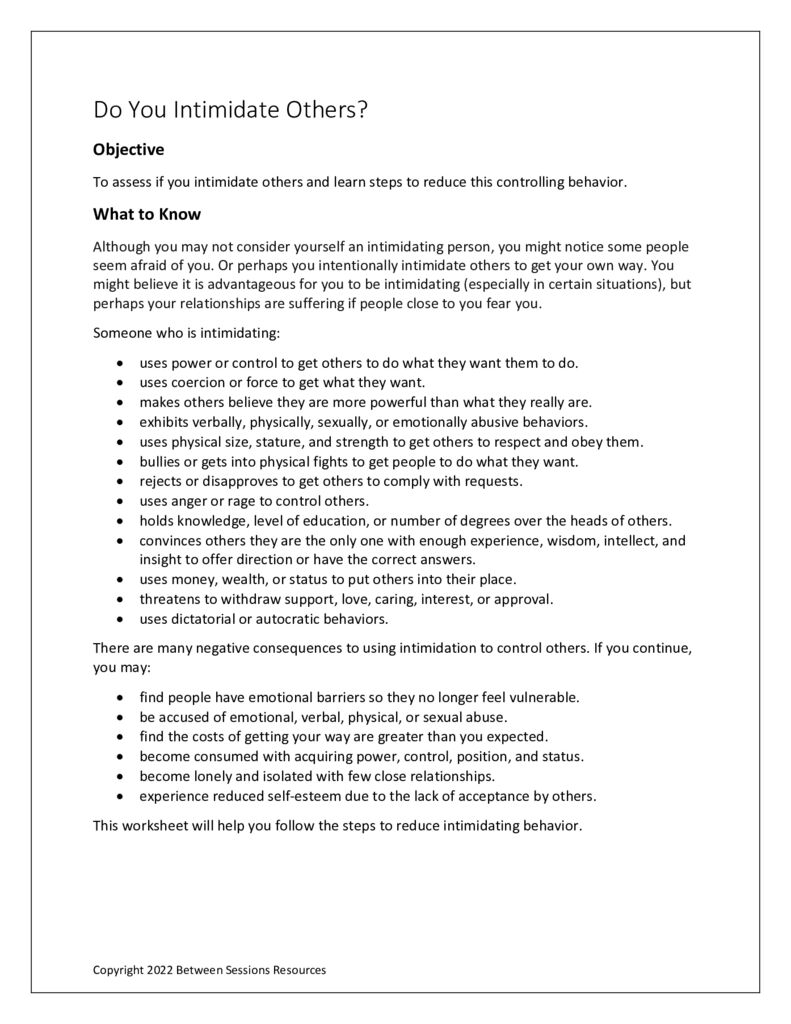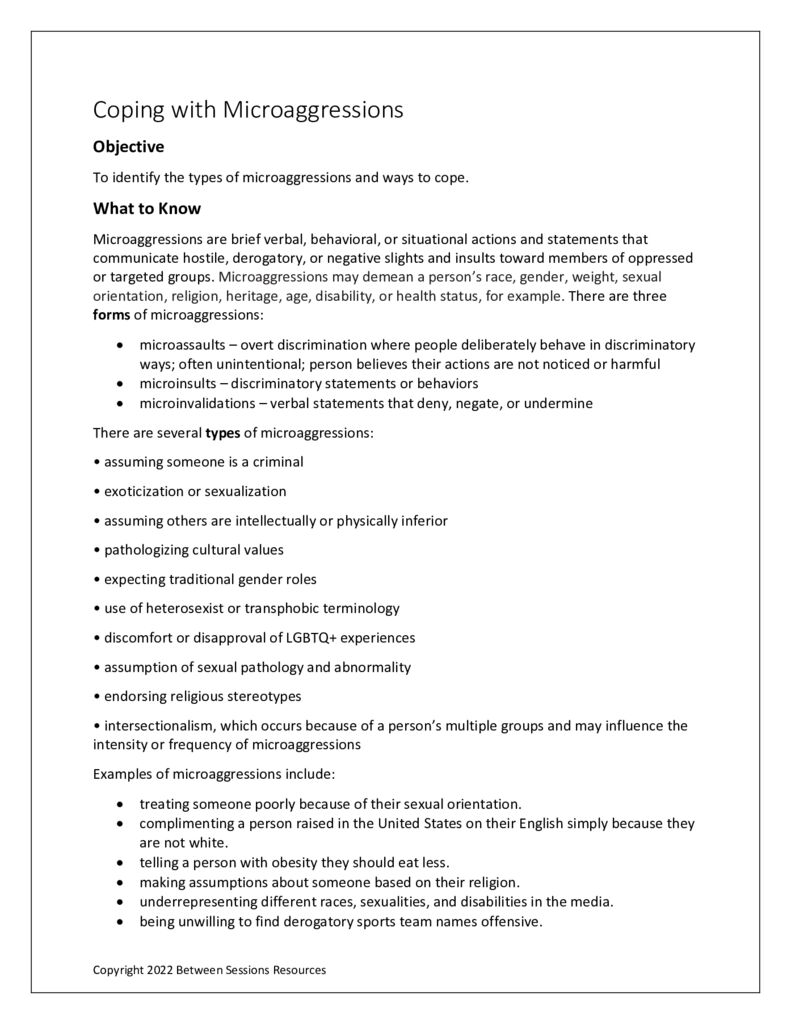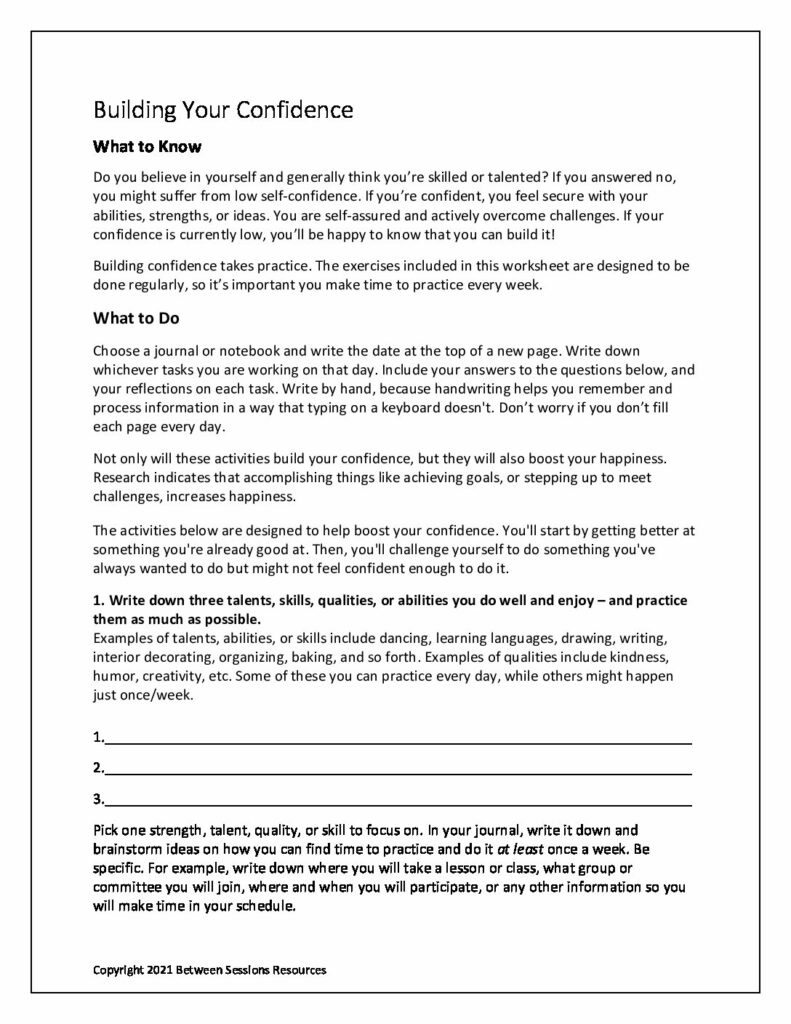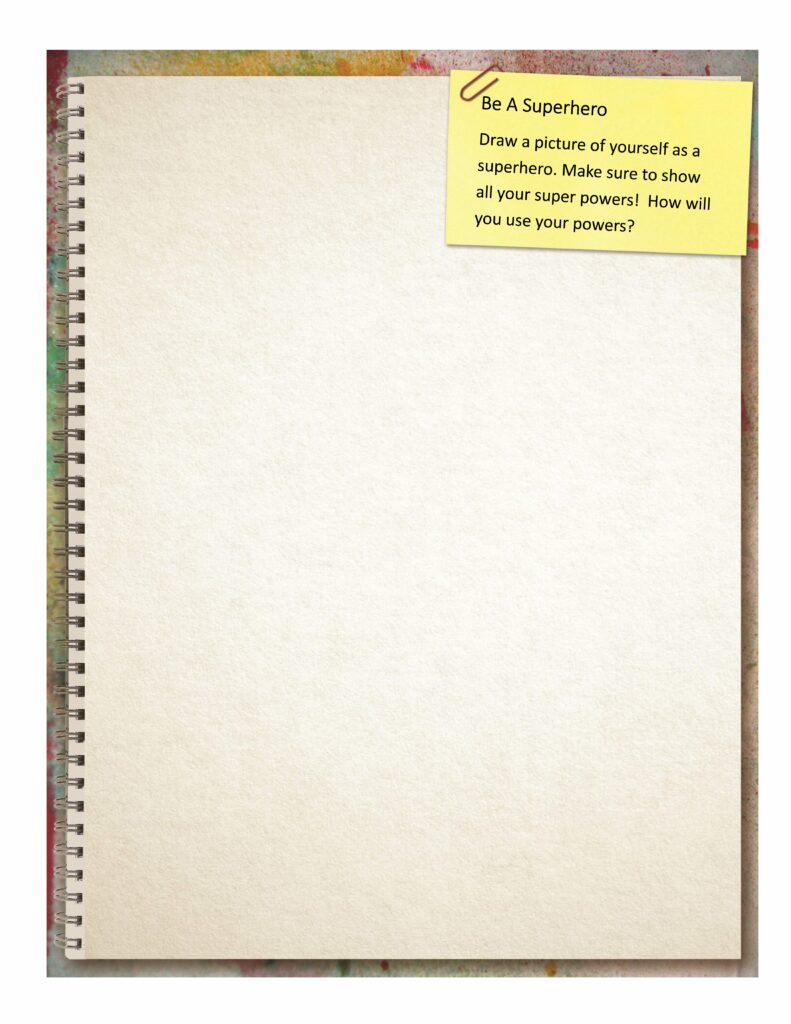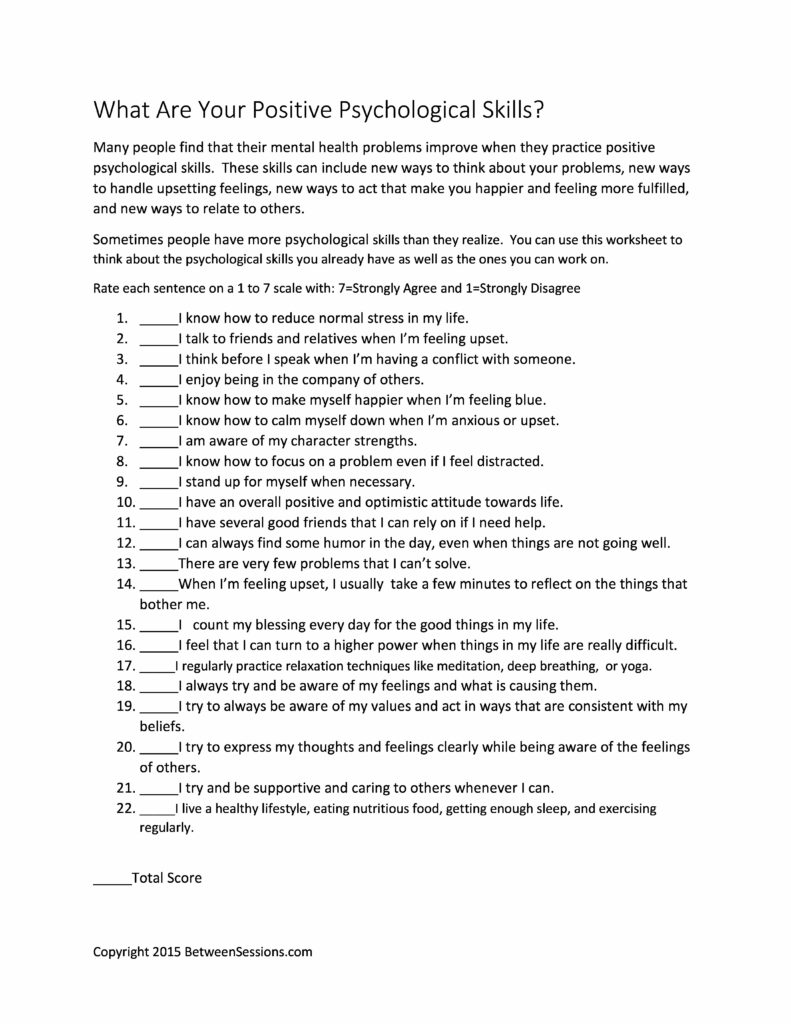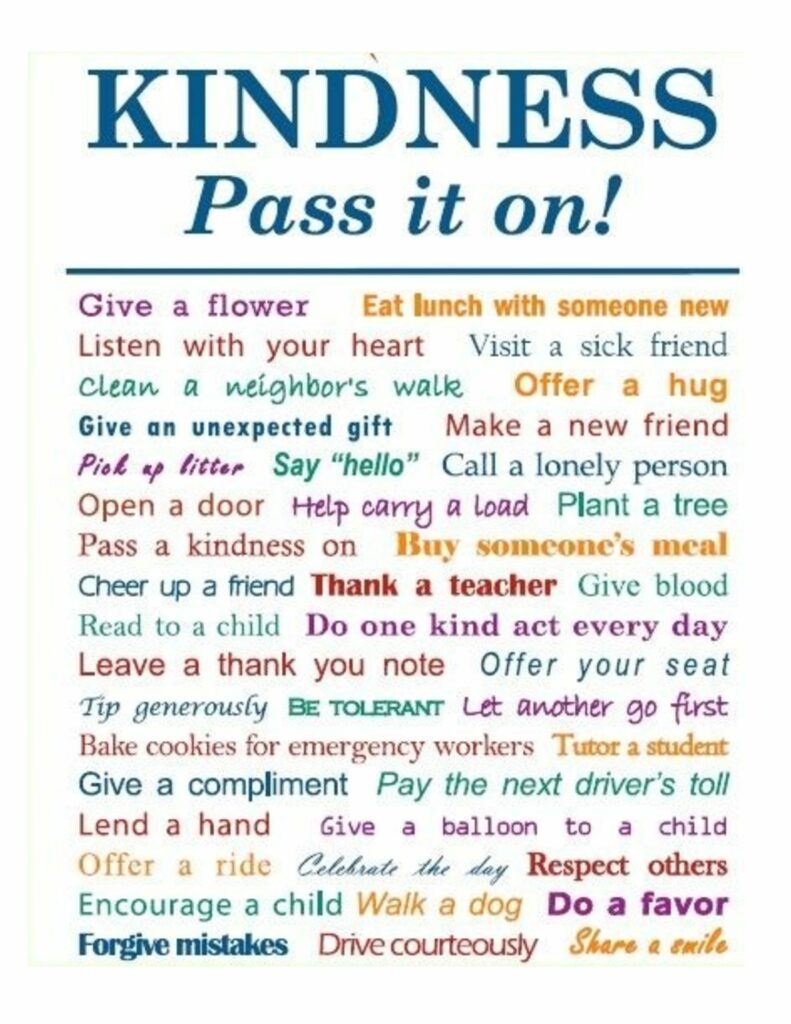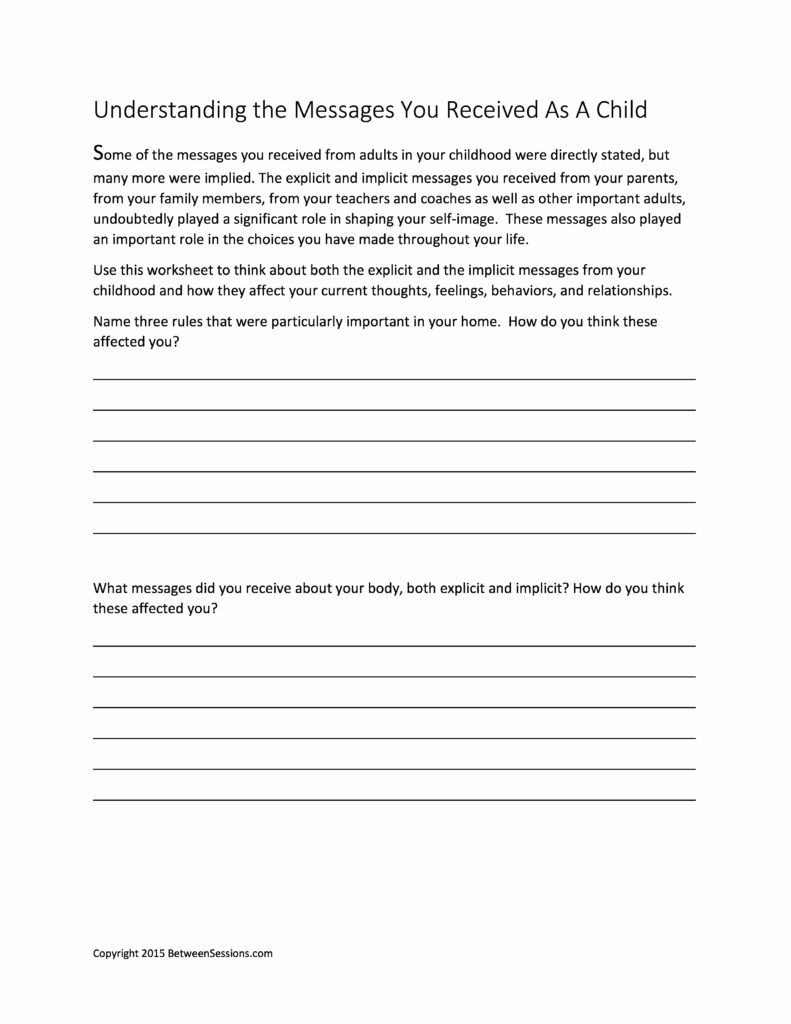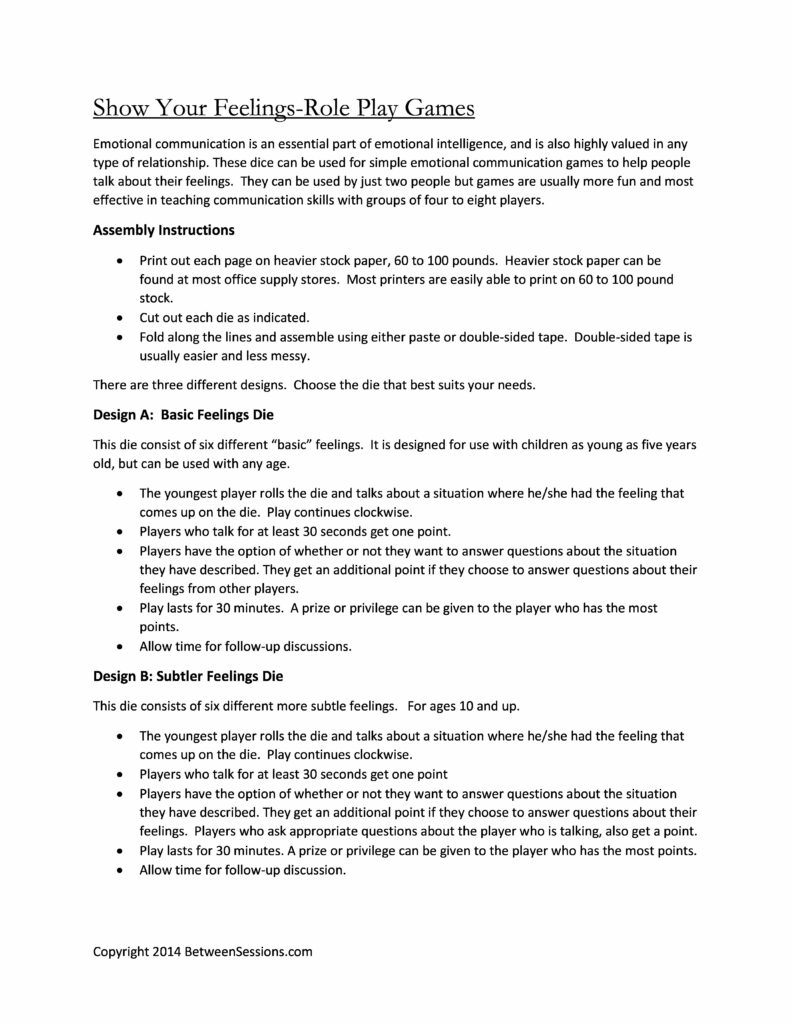Because of cultural stereotypes, LGBTQIA+ people may be socialized into thinking that being non-heterosexual is somehow “bad,” “wrong,” or “immoral,” – leading to feelings of low self-esteem and even self-hatred. This worksheet is designed to help people determine if they have “internalized homophobia” also known as “internalized oppression.” The worksheet helps people identify negative and distorted thinking and replace these thoughts with self-acceptance and self-love. (0324. homophobia, LGBTQIA+)
This worksheet is designed to help people who have a difficult time trusting others. It begins with a list of statements about trust. People who check more than five statements may have trouble trusting others. The worksheet then suggests several activities to help people explore the issue of trust, including writing a letter to someone they distrust (it doesn’t have to be sent) and taking a “trust walk,” where each person takes a turn being blindfolded and led by the other. (0822, relationships, trust, family therapy)
This worksheet is designed for people who may not be aware that they are intimidating to others. The worksheet defines behavior that makes up intimidation and the negative consequences intimidation has on others. The worksheet then gives 8 steps to help people reduce non-intentional intimidation. (0722, social skills, bully, workplace, relationships)
This worksheet is designed to help people deal with “microagressions, ” brief verbal, behavioral, or situational actions and statements that communicate hostile, derogatory, or negative slights and insults toward members of oppressed or targeted groups. Microaggressions may demean a person’s race, gender, weight, sexual orientation, religion, heritage, age, disability, or health status. The worksheet describes a process on how people can think about and react to microaggressions. (0522, prejudice, discrimination, diversity, aggression)
This worksheet gives people ideas on how to improve their confidence by recognizing their skills and talents, understanding how a lack of confidence is holding them back, and creating a self-talk script. (1021)
This worksheet encourages people to think about the super powers they would like to have and how they would use them. (Art Therapy, Quick, 0815)
This worksheet is designed to help people see their positive psychological skills and apply them to their current mental health issues. (0815, Solution-Focused)
This poster is designed to help people remember the importance of daily acts of kindness. (0715)
This worksheet is designed to help people examine the explicit and implicit messages they received as children and how these messages affect their self-image and self-efficacy. (0415)
Get people talking about their feelings with three “cut and tape” dice games. These games are fun to play and a great way to encourage kids, teens, or even adults to talk about their feelings.

